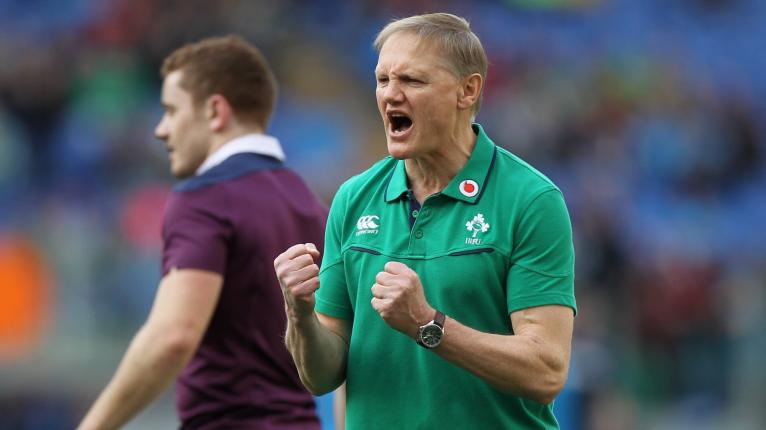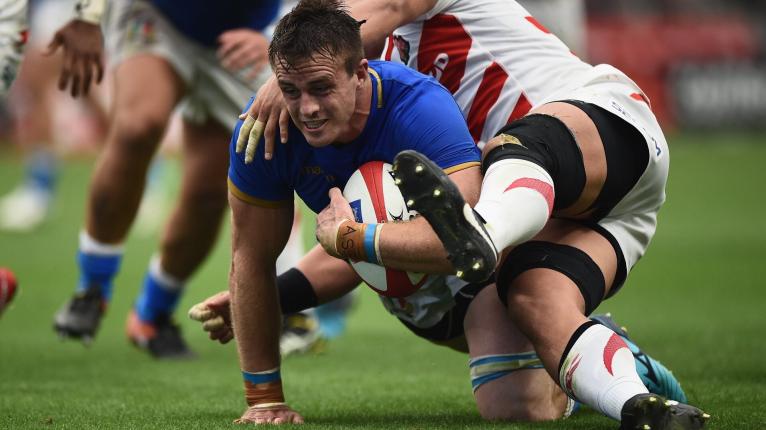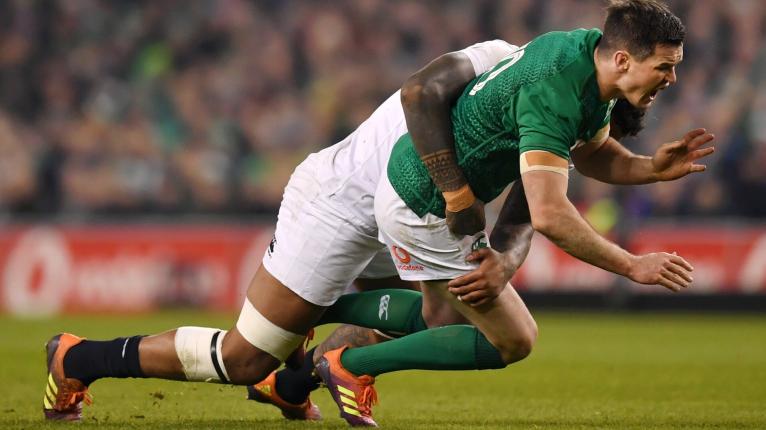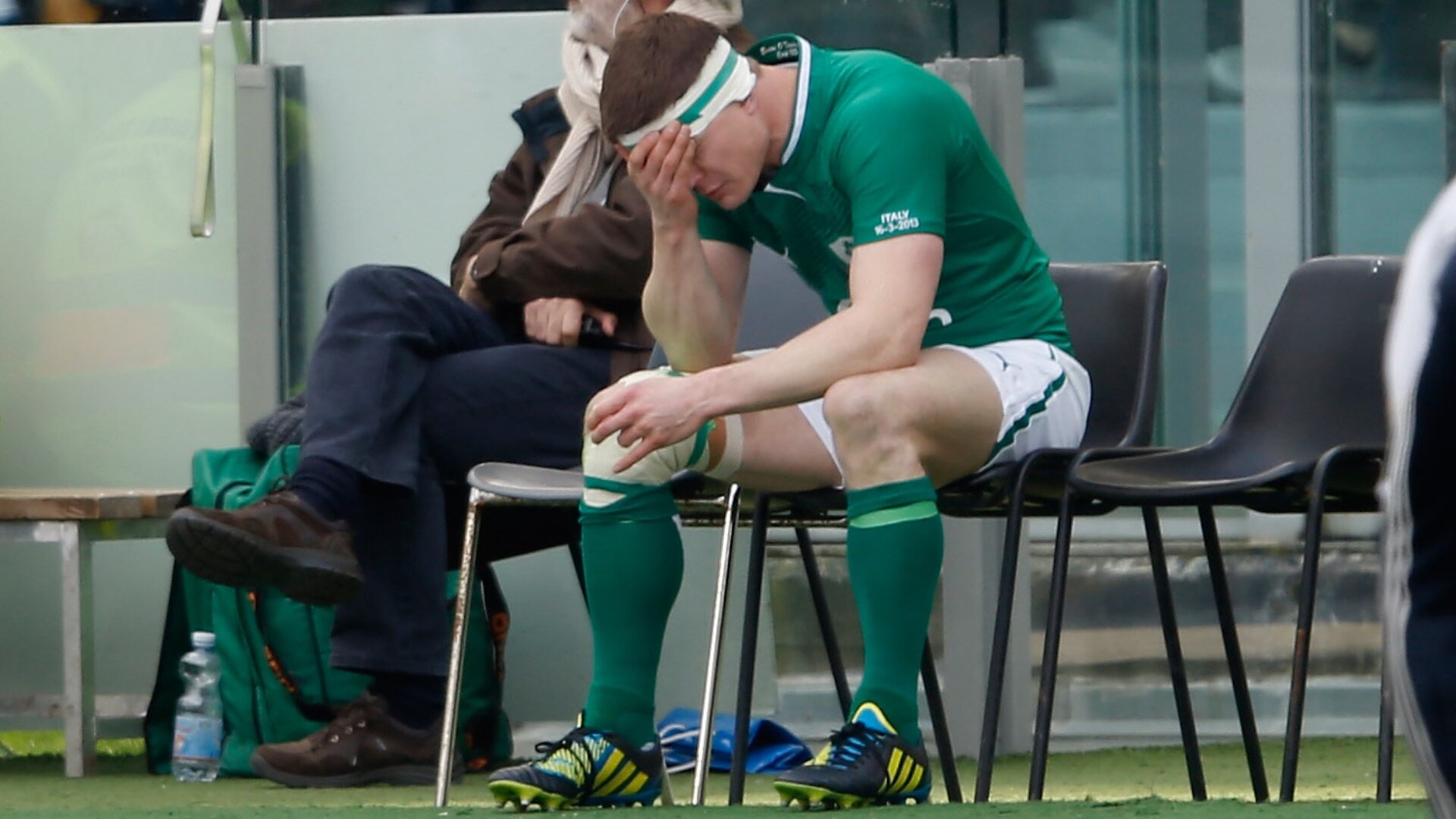Pre-match analysis - Italy vs Ireland

Leaving Stadio Olimpico in 2013 after Italy had magically ambushed Ireland in the mid-March afternoon sun, you’d never have predicted the gulf that now exists between these two counties.
The difference is night and day. Ireland are now in the frame to potentially win the 2019 World Cup. Meanwhile, the brickbats continue to mount concerning the Italians’ automatic participation in a Six Nations tournament where they haven’t won a match since 2015.
While that barren stretch will extend to 20 once their latest defeat materialises, Sunday will at least offer Italy a glimpse of life after talisman Sergio Parisse. It’s rare that the veteran ever misses a match, but his concussion last weekend while on Top 14 duty with Stade Francais means he can’t line out and how his team improvises in his absence will be interesting.
They have been smashed in their past four meetings with Ireland, the margin of defeat an embarrassing 43, 53, 37 and 47 and the try-count is a horrible seven to 34 against them.
That run suggests another pelting is on the horizon as Ireland prepare to launch themselves back into the 2019 Six Nations title race in front on an expected crowd in excess of 50,000.
(Continue reading below…)
COACHES
Joe Schmidt and Conor O’Shea are good coffee buddies even though they are operating at different ends of the international rugby spectrum with vastly different resources at their disposal.
With just a half-dozen wins in 30 outings (20 percent), O’Shea would be well within his rights given this disparity to begrudge the talent and the finance backing up the Schmidt regime compared to his financially straitened existence with an Azzurri waiting on a generation of youth to filter through the ranks of a system that is being slowly overhauled.
Dean Budd's emotional Six Nations tribute to his step-dad Pete ??????? https://t.co/fuBDJalUtx
— RugbyPass (@RugbyPass) February 21, 2019
Instead, the Irishman came out this week as one of the New Zealand’s most avid supporters, dismissing how so many Irish people turned on their team and their coach on the basis of one off-kilter performance against England at the start of the tournament.
That stinging reaction to the English loss was typical of the cyclical boom or bust domestic assessment of Irish rugby, a perspective all too often bereft of balance.

It’s something Schmidt, who has won 47 and drawn one of his 64 matches (74.2 percent) has struggled to become accustomed to in his six years in charge, but the prognosis will be back in boom territory once more after he unleashes his latest plan to tear the Azzurri to shreds.
For whatever reason, O’Shea has struggled to come up with credible damage limitation plans against a mentor he regular picks the brain of and will likely get bogged down again in Rome in this latest rendezvous.
PLAYERS
Braam Steyn (62) vs Jordi Murphy (75)
This is Steyn’s eighth start in 13 Six Nations appearances and it’s his biggest yet as he has been handed the Italian No8 shirt vacated by the concussed Parisse. He has much on his plate if he is to fill that shirt responsibly and close the Rugby Player Index gap between him and Murphy, who is a far better-rated operator even though he has only started twice in his last eight Ireland appearances. Murphy has been enjoying a new lease of club life at Ulster following his summer switch from Leinster and the expectation is his jackal (83) and snaffle (78) skills will far outshine what Steyn has to offer in these departments (75 and 57 ratings).

Leonardo Ghiraldini (72) vs Sean Cronin (88)
A gulf in form exists here. Cronin is rated the fifth best in the world of the 256 hookers ranked in the RugbyPass RPI, a status 49 places ahead of his Italian counterpart. However, despite this favourable billing, Cronin must look enviously at the greater Test exposure Ghiraldini has enjoyed. Sunday is the Italian’s 83rd start in 102 appearances, a hulking figure compared to Cronin looking forward to only his 10th start in 68 appearances. Such is the excruciating reality of Test life when playing second fiddle to first-choice Rory Best. Still, Cronin’s influence on a match (90, according to the RPI) far outweighs what Ghiraldini is bringing to this party (68) and he will be influential here even though the Italian has the better lineout score (76 to 73).
Tommaso Allan (60) vs Johnny Sexton (91)
Another chalk and cheese head-to-head as Sexton, ranked second best of the 17 Six Nations out-halves under the RPI microscope, checks in a dozen places higher than Allan whose only clear current edge on the Irishman is in the territorial kick metres category (85 to 58). Life hasn’t been pretty for Sexton since he lost the run of himself as Leinster skipper in their post-Christmas league loss at rivals Munster. Injuries have left him short of form which is why he is starting a fixture that would otherwise have been earmarked as an opportunity for an understudy to get a run-out. That development will allow Allan to get a close-up lesson in how form is temporary and class is permanent.

Jimmy Tuivati (49) vs Peter O’Mahony (93)
Tuivati is a lovely personable bloke. Check out the acclaimed RugbyPass This is Zebre documentary for proof about his easy-on-the-ear likability. However, his cordial way with words is about to encounter the nightmare that is O’Mahony’s on-pitch gruffness and a rough-and-ready playing style that takes no prisoners. Making just his first Italian start after three caps as a sub, Tuivati, the New Zealander who qualifies under residency rules, is rated 167 of the 188 blindsides in the RPI index. Given that O’Mahony occupies second place, the expectation is for a one-sided battle, especially as the Irishman, with regular captain Best rested, is a passionate skipper who will quickly ramp up the tempo.
Key battlegrounds
Italy’s defence has appeared a tighter unit in this season’s opening rounds compared to 2018, leaking only seven tries against the 15 of a year ago. Of course, Scotland and Wales don’t pose the same attacking threat as England and Ireland, their first two opponents last term, but it’s encouraging all the same that they appear to be better connected on the backfoot.
What would further help is having more time on the ball in enemy territory. The Italians have encouragingly taken their tries in recent weeks, suggesting their creativity is improving, but foundations will need to laid in the tight if they are to cause Ireland much, if any, concern.
Off we go. #TeamOfUs #ITAvIRE #shouldertoshoulder pic.twitter.com/4xW4x6R9oV
— Irish Rugby (@IrishRugby) February 22, 2019
With Schmidt opting to alter half of his starting pack, the Italians could create problems if they start well. There are scrummaging questions to be asked of Dave Kilcoyne, lineout queries that need answering about the Ultan Dillane-Quinn Roux axis.
The fear for Italy is Ireland clicking at half-back. Their Sexton-Conor Murray combination has never been as uninspired-looking as it is now, so there is great onus is on Allan and Tito Tebaldi to be aggressive, to get in their faces and try and make a contest of a fixture that everyone, bar those in the inner Italian sanctum, would feel is already a foregone conclusion.
Conclusion
Unlike in 2015, when Ireland gouged ugly World Cup and Six Nations wins over Italy, that competitiveness has been absent in their past four meetings. Bar a three-try garbage time response in Dublin last year, the final quarter of these matches have been a major issue for the Azzurri as Schmidt is in the habit of unleashing a bench that runs the opposition ragged.
Ireland have scored 73 to Italy’s 24 points in the last 20 minutes, 11 tries to four, and while their replacements on this occasion includes a novice half-back partnership in John Cooney, who only has a half-dozen caps, and the uncapped Jack Carty, the presence of Lions forwards Jack McGrath and Iain Henderson illustrates the calibre of other players Schmidt has in reserve.

Italy have been pleased they have been competitive in their losses so far against Scotland and Wales, just 13 and 11 points being the respective margins of defeat in encounters where the try count has been only five scored and seven conceded.
That suggests structural improvement under O’Shea but minus talisman Parisse, they will have their work cut-out to be anywhere near Ireland who have had four tries on the board by the 39th, 34th, 35th and 45th minute in recent head-to-heads. Expect another early bonus to fall Ireland’s way as they play their way back into the title race.
























